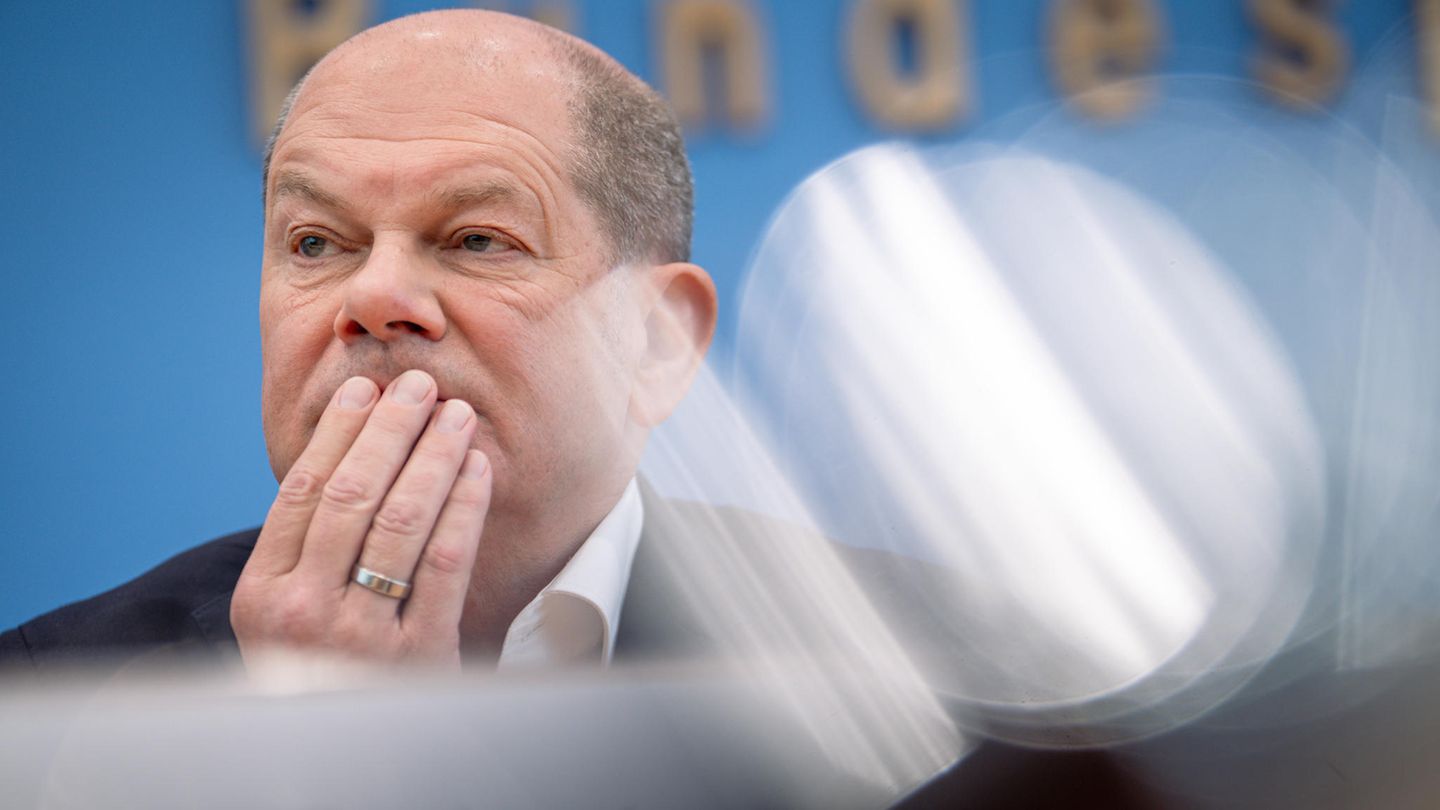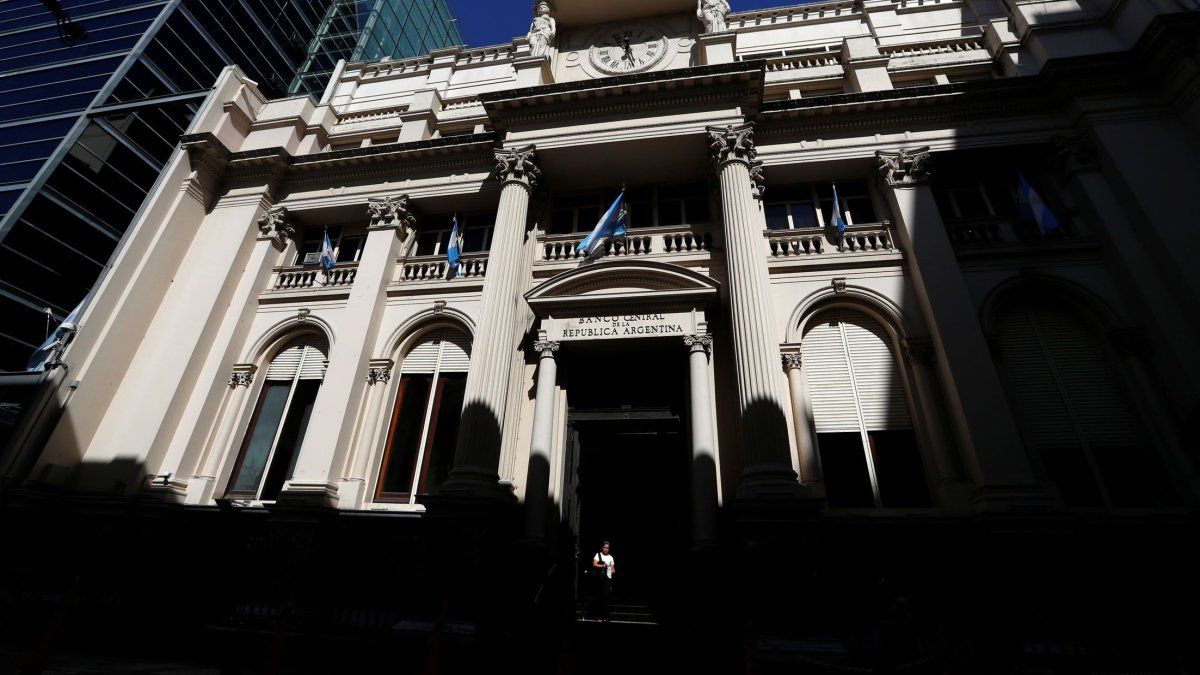Thank you for your question: The Chancellor will once again be making a sweeping statement to the capital’s press this afternoon. It’s about everything – in every respect.
When Angela Merkel was once asked why she liked to spend her summer holidays in the mountains, the then Chancellor cited “an interesting ventilation of the respective brain formation”. That was a rather cryptic way of saying: I had a good rest. “A lot of thoughts go through your head when you’re not in Berlin every day.”
Olaf Scholz is also likely to have one or two thoughts in his head as he begins his summer vacation. For example: Will the traffic lights still work?
Unlike his predecessor in August 2006, Scholz will be attending the traditional summer press conference before the holidays, not after. This Wednesday, from 12.30 p.m., the Social Democrat will be answering questions on “current domestic and foreign policy issues” for the third time and explaining his view of things. So everything is at stake – and this time there is a lot to it.
The number of crises is enormous, ranging from the war in Ukraine to the economic downturn to asylum and migration policy. The pressure on the unpopular coalition and its head of government is enormous; according to a recent survey, only a third of SPD members think that he is the right candidate for chancellor. Time to clear the air in the brain? Probably urgently needed, but somehow not possible.
And so, after this “summer press conference”, as it is called in political jargon, three things can be deduced. Firstly, what priorities Scholz wants to set in order to – secondly – fight his way out of the crisis. And, thirdly, whether he has the strength to make a clear statement or even a classic word of authority to his coalition. Because that could be needed, as Scholz’s last two appearances have shown.
Olaf Scholz and the “letting things be”
His predecessor liked to use the summer press conference to send catchy messages. “We can do it,” she said in 2015 in the wake of the large refugee movement to Germany. In 2020, she underlined the drama of the corona pandemic (“It’s serious. Continue to take it seriously.”). Or admitted mistakes: “Not enough has happened,” she said in 2021 about German climate policy, in her last appearance of this kind.
Olaf Scholz also made some memorable statements in the “summer press conference”. At his first appearance as chancellor, he promised: “You’ll never walk alone”. That was in August 2022, when a veritable energy and economic crisis was looming in Germany in the wake of the still young war in Ukraine. The traffic light coalition had put together massive relief packages, but was already arguing about how to proceed. For example, about the extended operation of the three remaining nuclear power plants at the time or the future of the 9-euro ticket. Scholz shifted to the role of moderator, the mediator between the FDP and the Greens, who were arguing particularly committedly and persistently at the time. Nevertheless, in August 2022, the head of government was convinced that the traffic light coalition would hold out for four years despite all its points of contention, and that he even had a perspective “that goes beyond that”. In other words: the traffic light coalition’s re-election.
The key question is probably whether the Chancellor still sees this perspective two years later and after all sorts of fundamental disputes – most recently about the federal budget. At his second appearance, at the 2023 summer press conference, Scholz was already a little more at ease with his pugnacious government.
The Chancellor was very self-confident, and he spoke in favor of the traffic light policy: “This is big-big” (instead of small-small). But after the damned “heating law,” his explanation for the months-long dispute seemed strained. “You have to realize that consensus, compromise and letting things slide is a good way to move Germany forward,” said Scholz. A remarkable statement, especially since the AfD had just reached a new high in the polls (22 percent). Nevertheless, Scholz was “quite confident” that the right-wing populists “will not perform much differently in the next federal election than in the last one.”
After all, there is time for small curiosities
Looking back, it can be said that the coalition is still arguing, perhaps more than ever. The AfD still has solid poll ratings, despite all the Russia-China revelations. And the moderator role has done Scholz more harm than good, as it has raised considerable doubts about his leadership skills – not least within his own party. How can we deal with this mixed situation? Scholz must provide reliable answers, sooner rather than later.
In September, new state parliaments will be elected, first in Saxony and Thuringia, then in Brandenburg. The traffic light parties, not least the Chancellor’s party, are threatened with serious defeats – even leaving parliament. After the already unsuccessful European elections, the already unstable coalition structure could falter further, possibly even collapse.
All of this is likely to be touched upon during the 90-minute summer press conference. Scholz, who is not particularly inclined to expand verbally, may feel the need to clear his head after the barrage of questions. After all, there is usually room for little curiosities.
Last year, a journalist’s “Jingle Bells” ringtone made the Chancellor giggle happily. And attentive listeners will not have missed the small piece of information that Scholz last went swimming in an outdoor pool 40 years ago. A corresponding question was asked in connection with the riots in German outdoor pools.
And how will the Chancellor spend his summer holidays? He recently revealed this much: he is looking forward to peace and quiet, to being able to do sports and read books, and to spending a lot of time with his wife. Scholz did not say where he will do this, however. It doesn’t really matter. The main thing is that there is time to get some fresh air, at least for a short time.
Source: Stern
I have been working in the news industry for over 6 years, first as a reporter and now as an editor. I have covered politics extensively, and my work has appeared in major newspapers and online news outlets around the world. In addition to my writing, I also contribute regularly to 24 Hours World.




